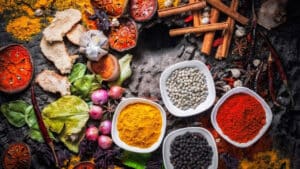No, don’t back away. I know bile isn’t generally considered a pleasant thing, but it is important. Without it, your digestive system wouldn’t work properly and you wouldn’t be able to get all the nutrients you need out of food.
The concept of bile dates all the way back to Ancient Greece, when doctors thought that all the body’s ills were caused by an imbalance in what were known as the four humors. These were blood, phlegm, yellow bile and black bile. Our understanding has come a long way since then, and now bile refers to a type of digestive fluid produced by the liver.
Bile can be anywhere in color from dark green to yellow to almost brown. It’s also known as gall. Once the liver has produced it, it’s moved into the gallbladder for storage. Then, when you eat, it is released into the section of the small intestine called the duodenum. There it helps break down and absorb lipids, or fats, by preventing the smaller particles from congregating together in larger blobs.
If you don’t have enough bile, these fats won’t be absorbed by the body. Instead, you’ll end up expelling them when you go to the toilet. This is known as steatorrhea, and it can cause your waste to turn a pale white or gray color instead of brown and to be particularly oily and smelly. Obviously, this is unpleasant, and treatment requires figuring out what actually caused the problem in the first place (obstructions, liver problems, gallbladder problems etc.).
Gallstones can be caused by the accumulation of substances found in bile. Most of the time, this won’t cause any significant symptoms, but if you do experience pain and discomfort, it can lead to your gallbladder being surgically removed (cholecystectomy).
Then there’s something called bilirubin, which is produced when the body tries to remove old or damaged red blood cells. If the bile ducts are obstructed in any way on their journey from the liver to the gallbladder to the duodenum, bilirubin starts to build up in the blood. This may cause jaundice.
As you can see, bile is pretty important and probably doesn’t deserve its nasty reputation. If your bile ducts are obstructed or you’re not producing enough bile, whether the cause is in the liver, gallbladder or elsewhere, it can cause digestive problems. It’s worth understanding how it works.




